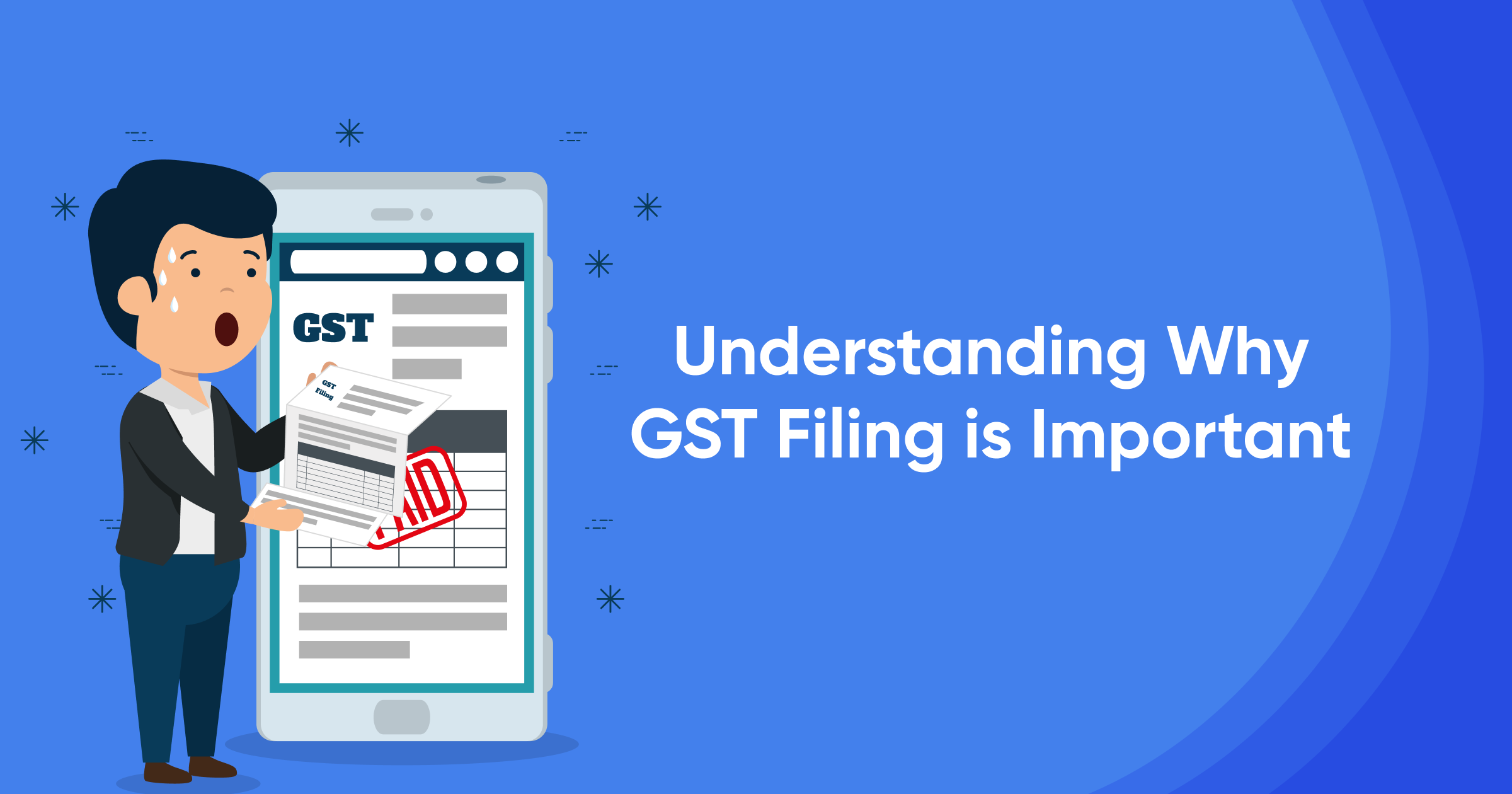The Goods and Services Tax (GST), implemented in India in 2017, revolutionized the indirect tax landscape. It aimed to streamline the tax structure, eliminate cascading effects, and promote a transparent and efficient tax administration system. One of the key pillars of GST compliance is filing regular returns. While the benefits of GST are undeniable, navigating the intricacies of GST filing can be daunting for businesses. This comprehensive guide aims to demystify the GST filing process, empowering businesses to comply effectively.
The Importance of GST Filing in India
For businesses registered under GST, filing returns is not merely a legal obligation; it is a critical aspect of tax compliance. Here's a breakdown of the significance of timely and accurate GST filing:
- Compliance with the Law: GST filing is a mandatory requirement for all registered businesses exceeding the prescribed threshold turnover. Failure to file returns can lead to significant penalties, interest charges, and even cancellation of GST registration. This can disrupt business operations and damage the company's reputation.
- Claiming Input Tax Credit (ITC): GST allows businesses to claim credit for the GST paid on purchases (inputs) when used for making taxable supplies (outputs). This mechanism helps to avoid double taxation and reduces the overall tax liability. However, claiming ITC is contingent upon filing GST returns. Delays or errors in filing can lead to ineligibility for claiming ITC, thereby increasing the tax burden on the business.
- Transparency and Credibility: Regular GST filing demonstrates a business's commitment to transparency and compliance with tax regulations. This fosters trust with the government, potential investors, and business partners. A clean record of GST filing can enhance a company's creditworthiness, facilitating access to loans and other financial instruments.
- Reduced Risk of Audits: Timely and accurate filing of GST returns reduces the chances of triggering a tax audit. Audits can be time-consuming and resource-intensive for businesses. By diligently filing returns, businesses can minimize the risk of scrutiny and ensure a smoother flow of operations.
- Improved Business Insights: The data collected during the GST filing process provides valuable insights into a business's financial performance. Analyzing sales and purchase patterns helps with informed decision-making regarding inventory management, pricing strategies, and resource allocation.
Types of GST Returns and Filing Frequency
The GST framework mandates filing various return forms depending on the nature and size of the business. Here's a breakdown of the most common types of GST returns:
- GSTR-1 (Sales): This monthly return details all outward supplies made during a specific tax period, including taxable sales, exempt supplies, and nil-rated supplies.
- GSTR-3B (Consolidated): This monthly return summarizes the information from GSTR-1 (sales) and GSTR-2A (purchases) (automatically populated by suppliers). It calculates the tax liability for the month, considering the ITC claimed.
- GSTR-7 (Tax on Reverse Charge): This monthly return is filed by businesses liable to pay tax under the reverse charge mechanism, where the recipient of the supply is responsible for paying GST.
- GSTR-9 (Annual Return): This comprehensive annual return summarizes all the transactions of a business during a financial year. It provides a consolidated view of outward supplies, purchases, ITC claims, and tax liability.
The GST Filing Process: A Step-by-Step Guide (While You Secure Your Brand with Trademarkia)
Ensuring smooth and successful GST filing is crucial for your business, but don't forget about another essential step: protecting your brand identity! While you navigate the GST filing process, consider safeguarding your brand with a trademark
Simplified Steps to File GST with Trademarkia:
- Tell Us About Your Business: Start by providing us with details about your business. This will help us understand your specific needs and requirements for GST filing.
- Let Trademarkia Handle Your Application: Once we have all the necessary information, our team of experts will take care of the entire GST application process for you.
- Receive Your GST Number and Certificate: After we complete the filing, you will receive your GST Number along with your GST Certificate. This official documentation will be essential for all your business transactions and tax liabilities.
With Trademarkia, you can ensure that both your brand and your tax filings are in safe hands, letting you focus more on growing your business!
Additional Considerations for Effective GST Filing
- Maintain Accurate Records: Upholding meticulous records of all business transactions is paramount for effective GST filing. This includes invoices, bills of lading, purchase records, and e-way bills (for movement of goods). These documents serve as evidence to support the information reported in the GST returns.
- Stay Updated on GST Rules: The GST framework is subject to periodic revisions and updates. Businesses must subscribe to official government notifications and updates to remain compliant with the latest regulations. This ensures the accurate application of tax rates, exemptions, and other relevant provisions.
- Seek Professional Guidance: For businesses with complex transactions or those unfamiliar with the intricacies of GST, seeking assistance from a chartered accountant or GST practitioner can be highly beneficial. These professionals can offer expert guidance on return filing, tax calculations, and compliance management.
- Utilize GST Filing Software: Several GST filing software solutions are available in the market. These tools can automate data entry, perform calculations, and streamline the filing process, minimizing errors and saving time.
- Adhere to Due Dates: Timely filing of GST returns is crucial. Late filing attracts penalties and interest charges, impacting the business's financial health. Businesses should keep track of filing deadlines and plan accordingly to avoid delays.
Consequences of Non-Compliance with GST Filing
Failure to comply with GST filing regulations can have significant repercussions for businesses. Here's a glimpse into the potential consequences:
- Penalties: The government levies substantial penalties for late filing of GST returns. The penalty amount varies depending on the nature of the return and the delay period.
- Interest Charges: Businesses are liable to pay interest on any tax liability not paid on time due to delayed filing of returns. This can lead to a significant financial burden.
- Cancellation of GST Registration: In extreme cases of non-compliance, the GST authorities may revoke the business's GST registration. This can disrupt business operations and hinder the ability to claim ITC.
- Denial of Input Tax Credit: Businesses that fail to file GST returns on time may be denied the benefit of claiming ITC on purchases. This increases the overall tax burden on the business.
- Damage to Reputation: Non-compliance with GST regulations can negatively impact a company's reputation. Potential investors, business partners, and customers may view the business as unreliable and non-compliant.
Conclusion
Although seemingly complex at first glance, GST filing becomes a manageable process with the right knowledge and approach. By comprehending the importance of filing, familiarizing oneself with the different return types, and adhering to a meticulous filing procedure, businesses can ensure compliance and reap the benefits of the GST regime. Furthermore, staying updated on GST rules, seeking professional guidance when needed, and utilizing available resources can further streamline the process and minimize the risk of errors. By embracing GST filing as an integral part of their tax compliance strategy, businesses can operate with confidence and contribute to the success of the Indian tax ecosystem. For expert guidance and to simplify your GST registration process, consider registering with Trademarkia, your partner in navigating the complexities of tax compliance.
GST Filing Done? Now, Let's Secure Your Brand with Trademarkia!
Congratulations! You've conquered the GST filing process. But your journey to business success doesn't end there. While Trademarkia helped you navigate GST, we can also be your one-stop shop for safeguarding your brand identity.
Imagine the perfect brand name, logo, or slogan popping into your head. Don't let someone else steal the spotlight! Trademarkia offers a seamless and efficient way to secure your intellectual property rights, ensuring your brand stands out from the crowd.
Here's why Trademarkia is your perfect partner:
- Simple and user-friendly platform.
- Expert guidance throughout the registration process.
- Competitive pricing to fit your budget.
Ready to take the next step?
Head over to Trademarkia and get started on safeguarding your brand identity. Remember, a strong brand is an invaluable asset, so don't delay!
Frequently Asked Questions
What is the importance of GST filing in India?
GST filing is mandatory for all registered businesses and is crucial for tax compliance. It ensures timely claim of ITC (Input Tax Credit), transparency, reduced risk of audits, and improved business insights.
What are the different types of GST returns and their filing frequency?
There are various GST return forms depending on the business. Common ones include GSTR-1 (monthly sales), GSTR-3B (monthly consolidated), GSTR-7 (monthly reverse charge), and GSTR-9 (annual return summarizing all transactions).
What are the steps involved in the GST filing process?
The process involves gathering documents, logging into the GST portal, selecting the appropriate form, filling in details, uploading supporting documents, reviewing and submitting the return, and making the tax payment (if applicable).
What are the consequences of non-compliance with GST filing?
Non-compliance can lead to penalties, interest charges, cancellation of GST registration, denial of ITC, and damage to the business's reputation.
What are some tips for effective GST filing?
Maintain accurate records, stay updated on GST rules, seek professional guidance if needed, utilize GST filing software, and adhere to due dates to avoid penalties and ensure smooth compliance.







